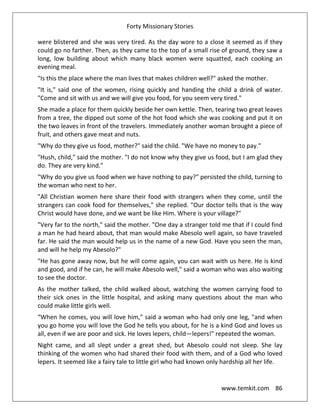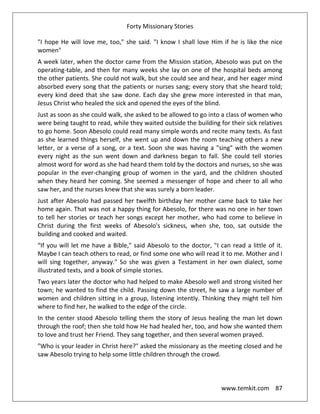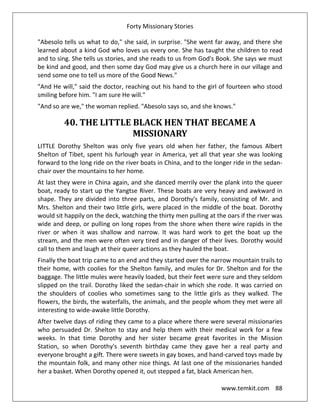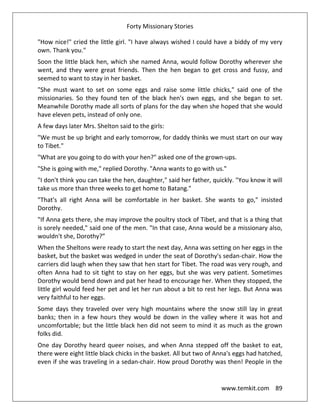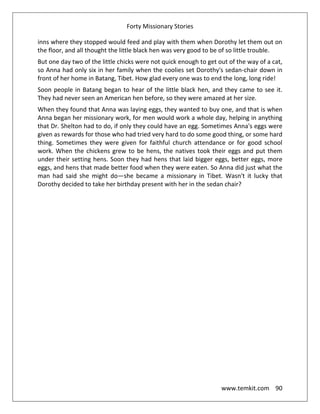This story describes a visitor to Inanda Seminary, a missionary school in Africa. She is awakened by the singing of the schoolgirls, but then sees three crying girls sitting outside, who have walked a long way to attend the school but were told there is no room. The visitor feels sorry that the school cannot accept them due to lack of space and funds to feed more girls. After prayers, she hopes a solution can be found to help the girls receive an education.

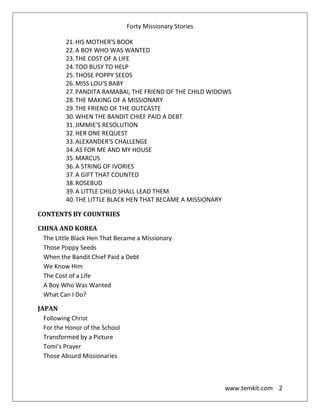

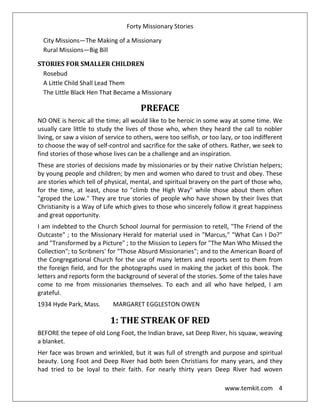
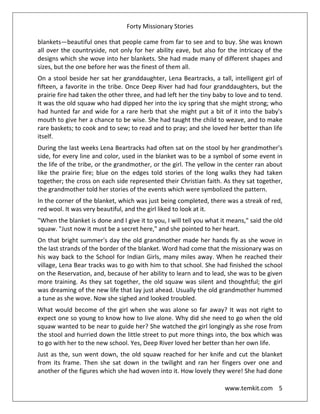
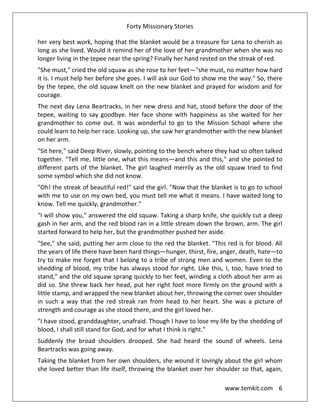
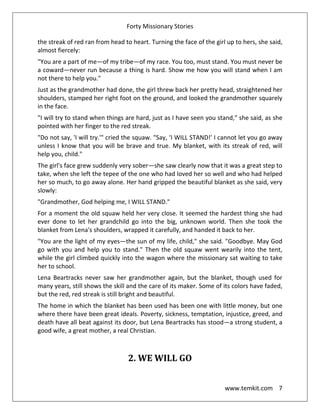
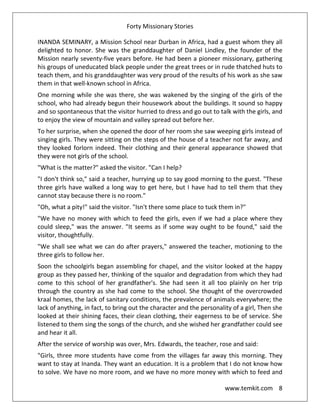
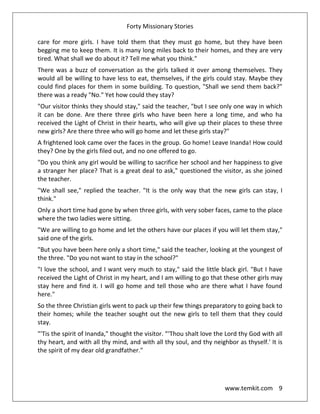
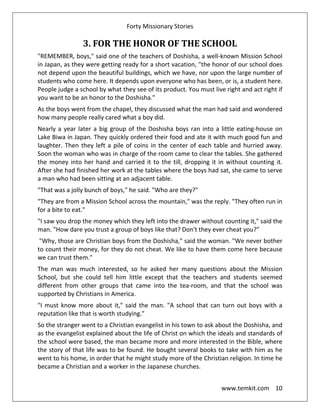
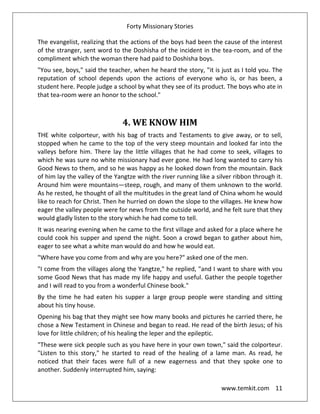
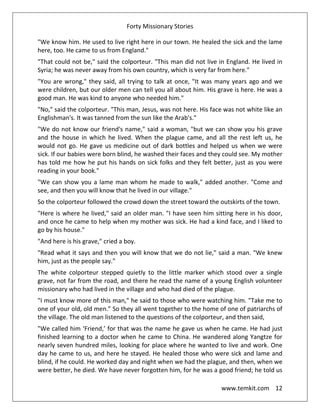
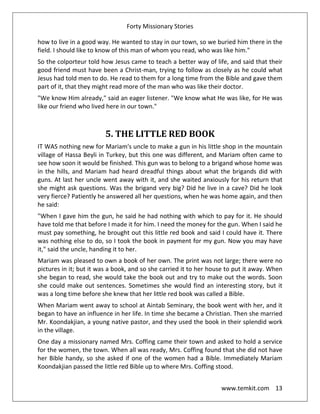
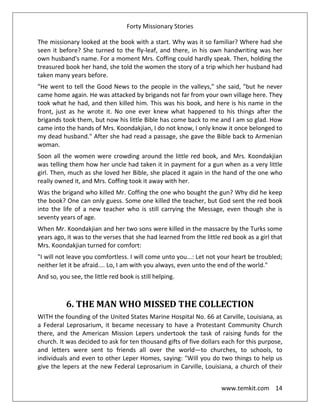
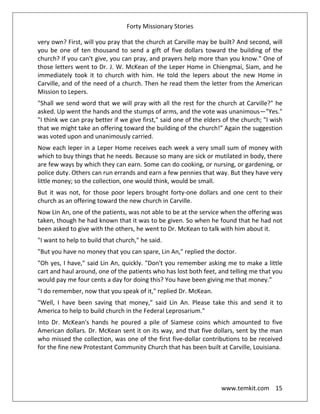
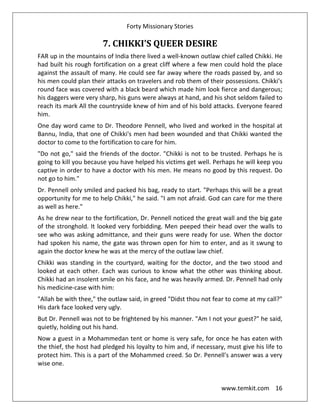
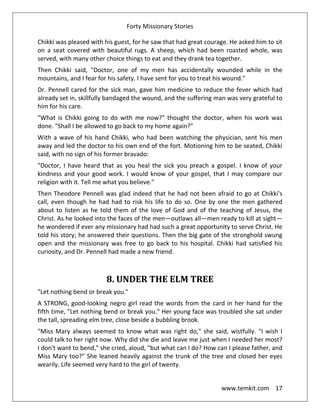
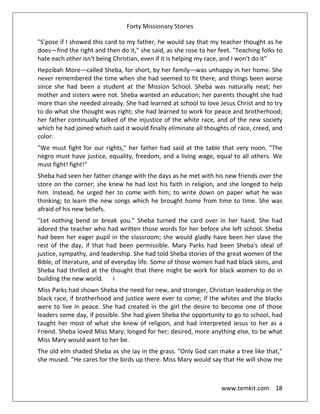
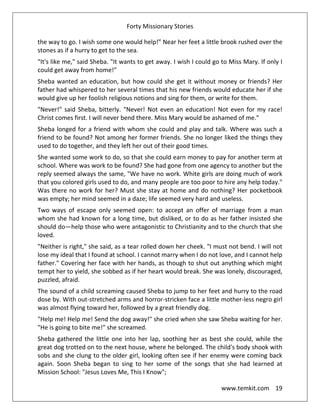
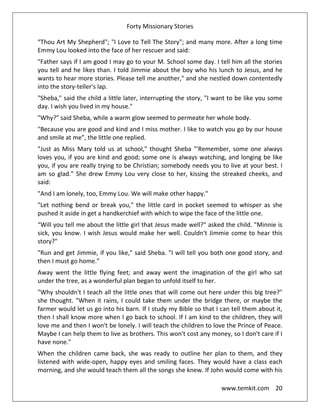
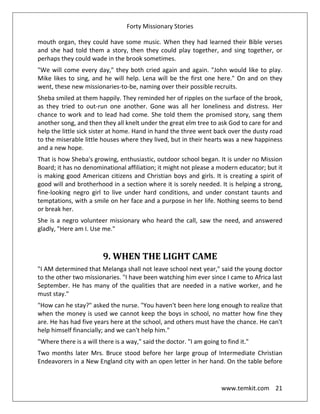
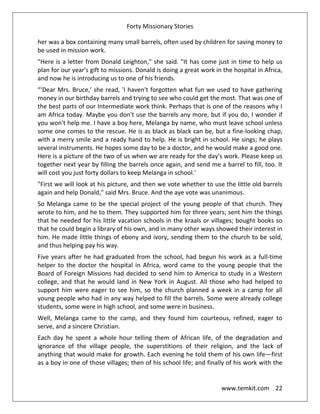
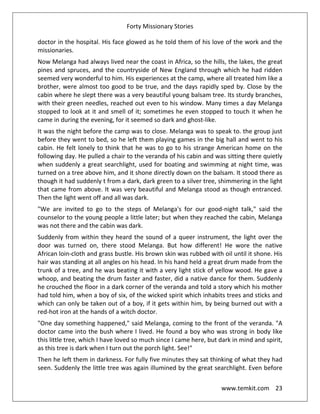
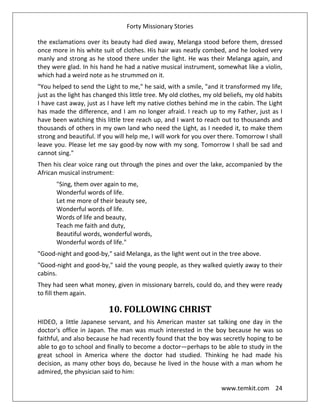

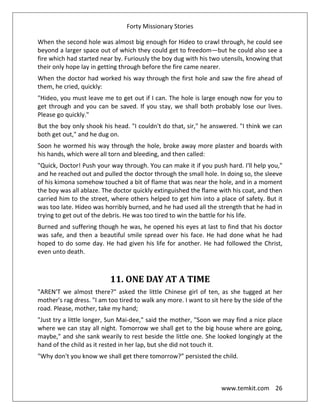
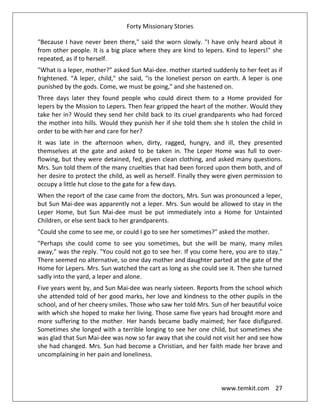
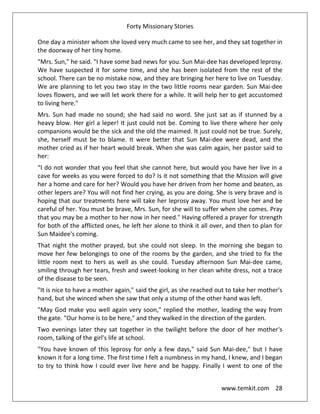
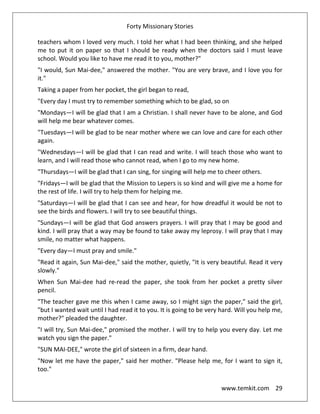
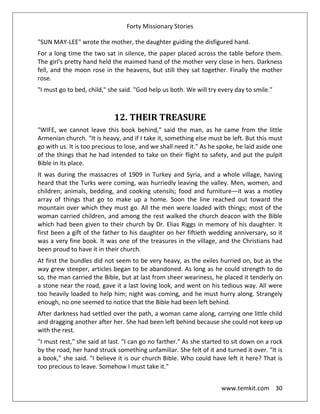
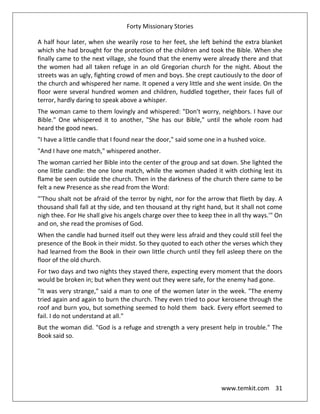
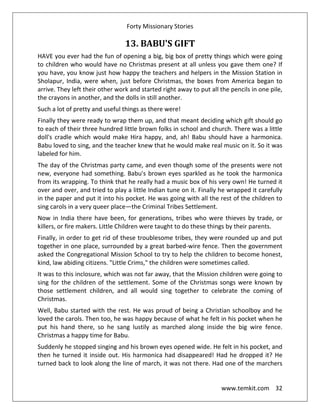
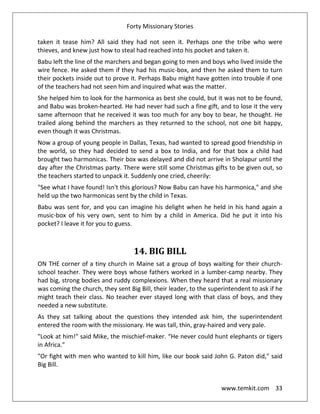
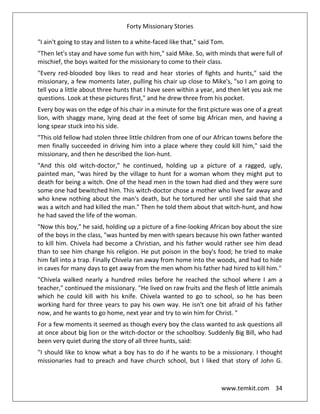
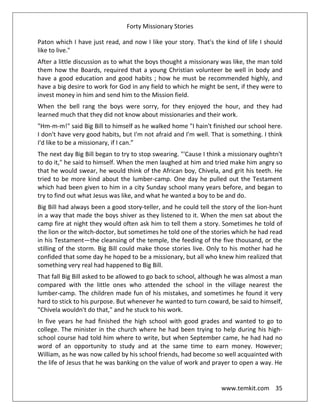
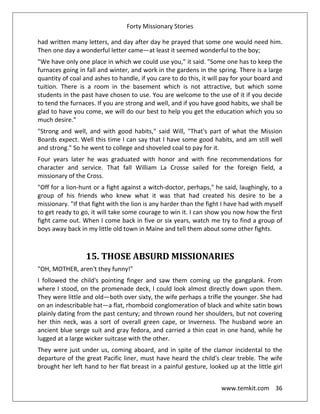
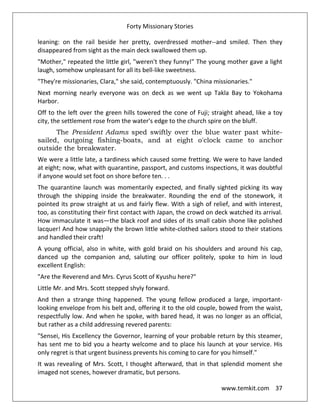
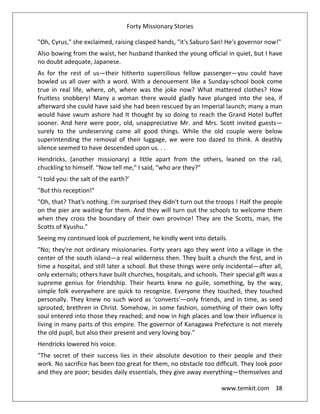
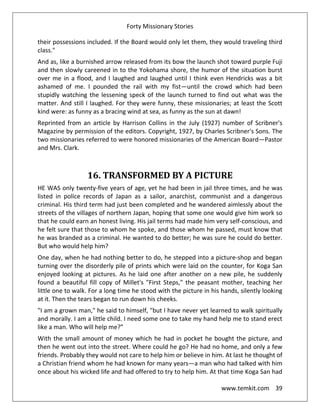
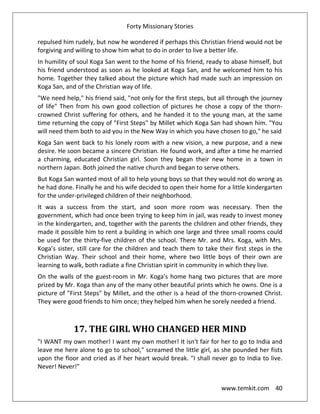
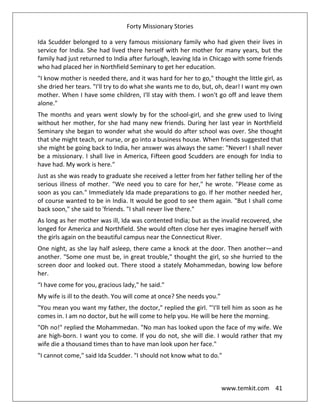
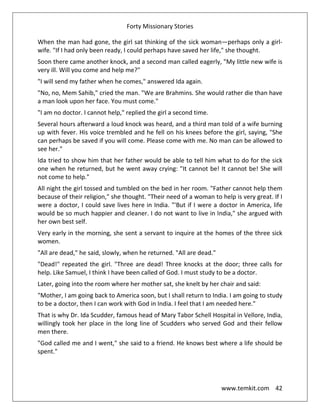
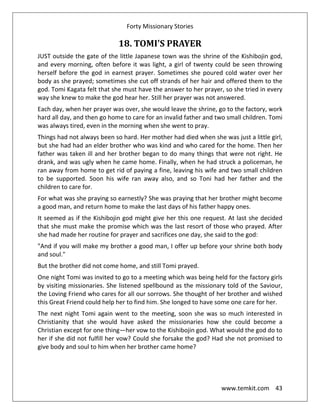
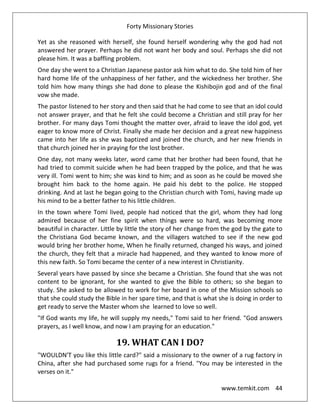
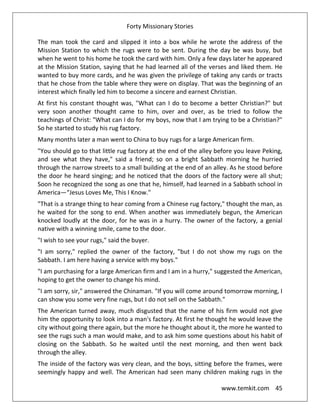
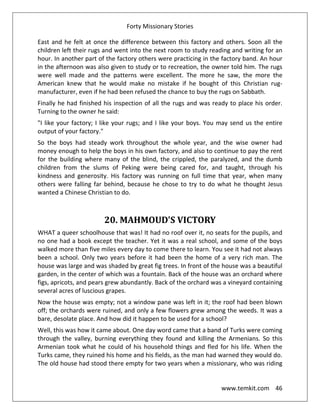
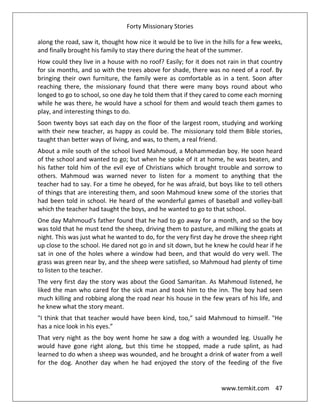
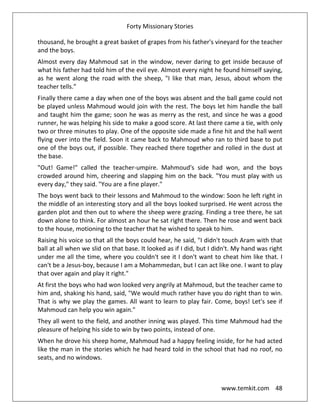
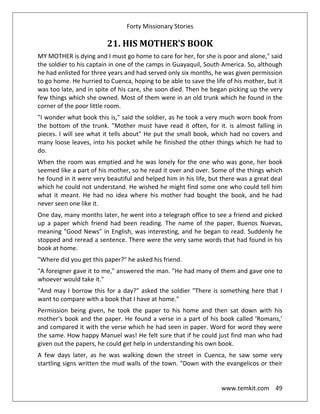
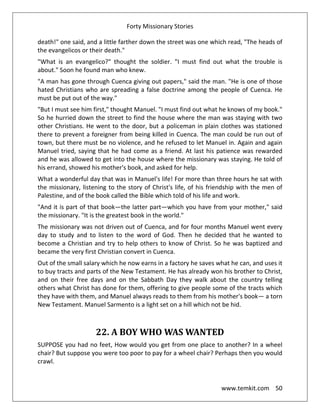
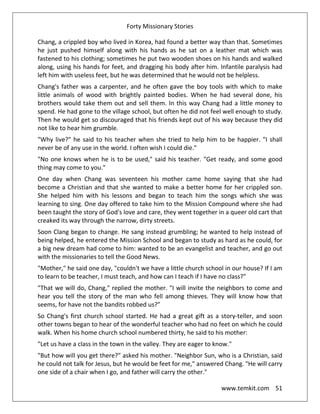
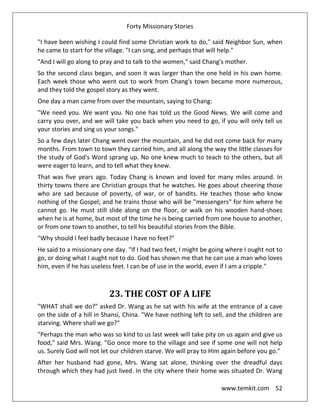
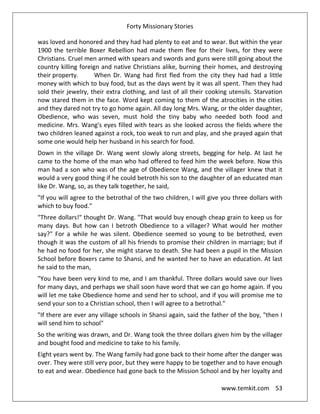
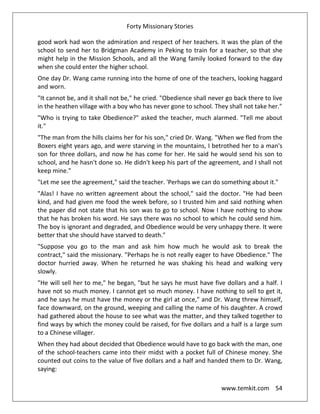
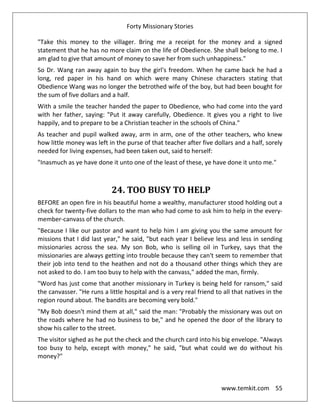
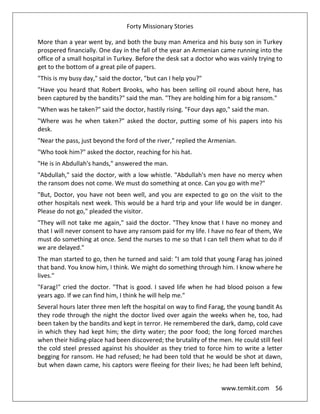
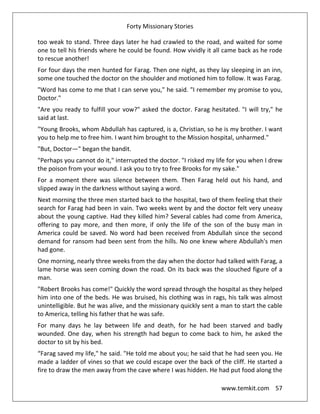
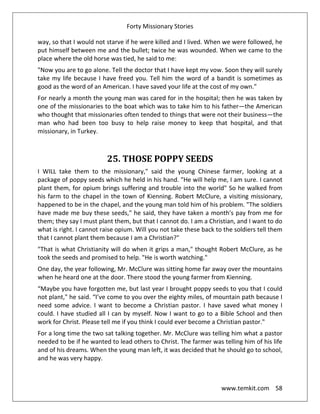
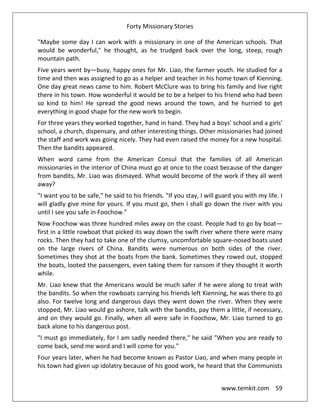
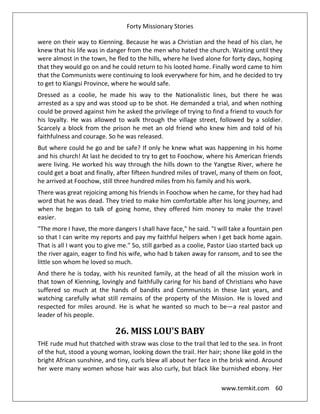
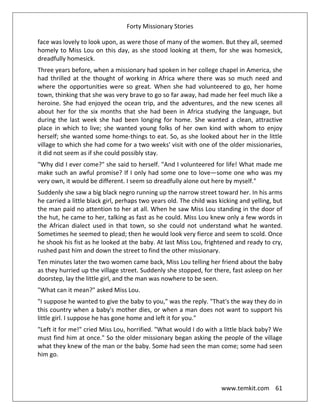
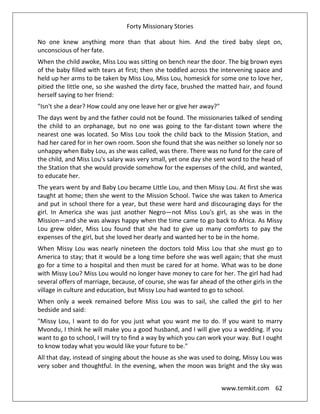
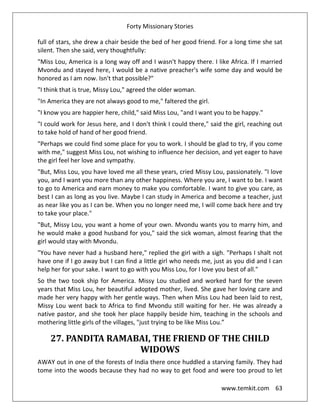
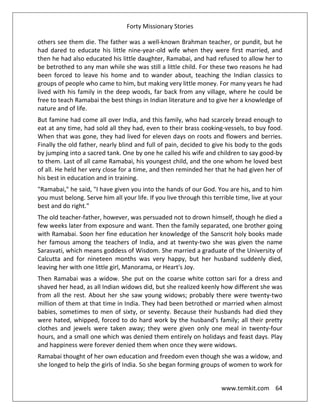
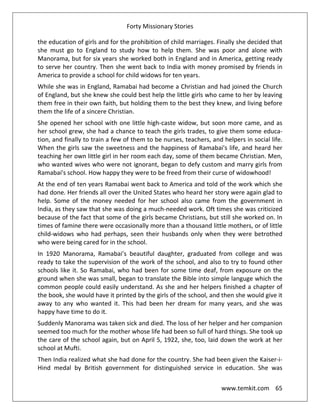
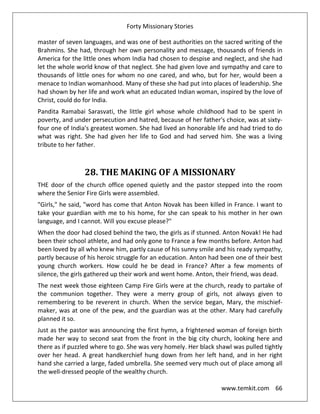
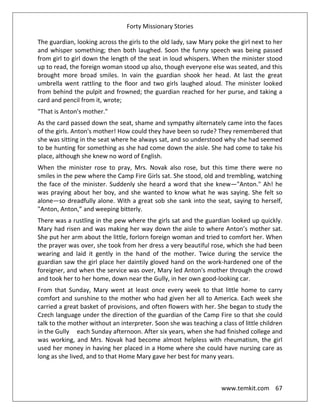
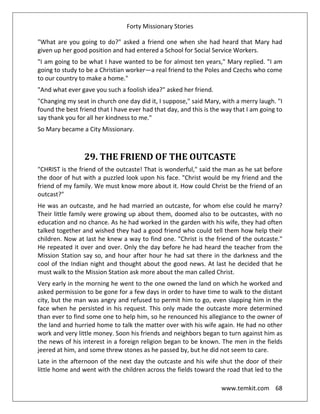
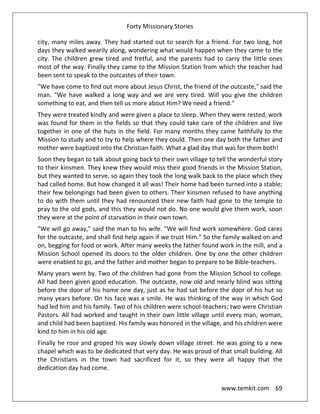
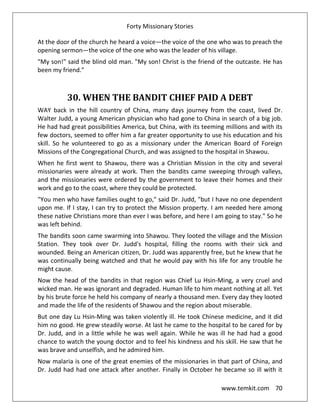
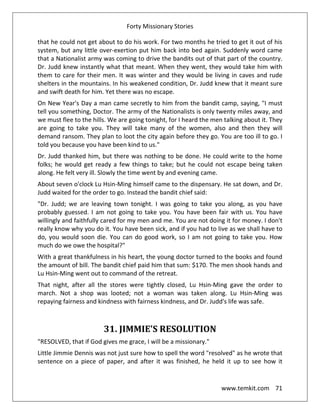
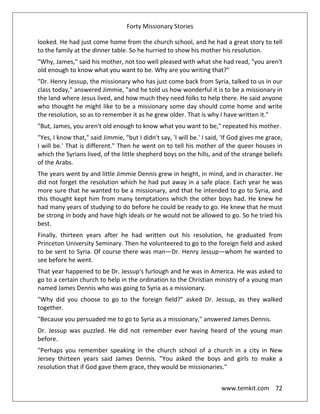
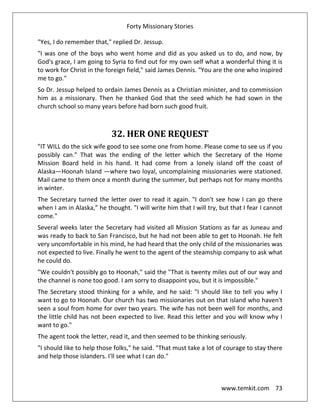
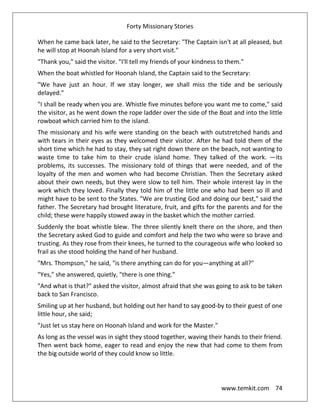
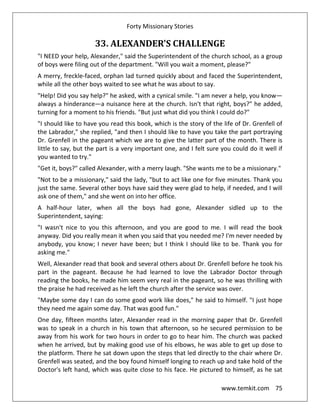
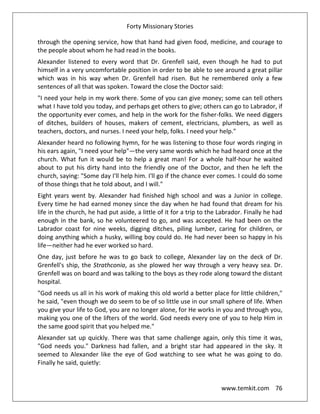
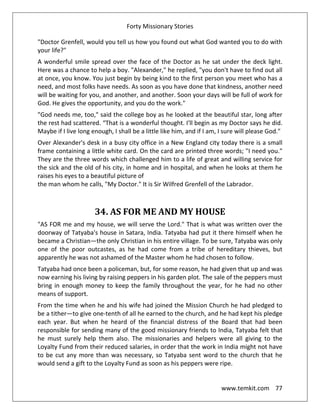
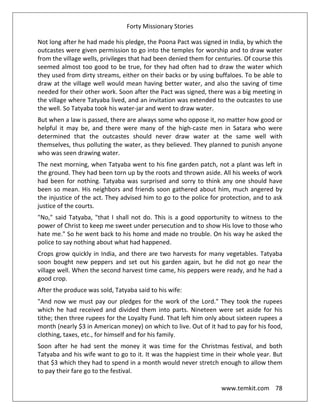
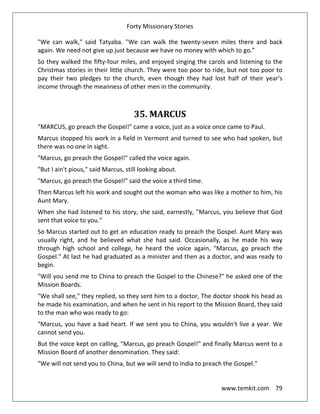
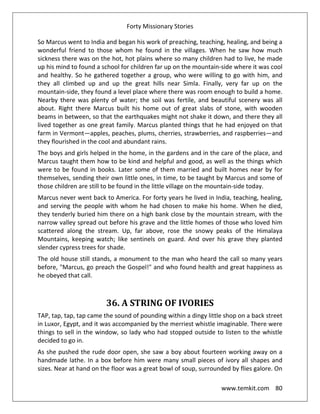
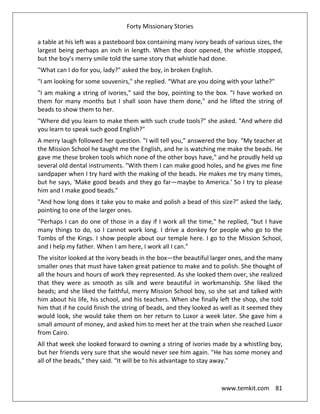
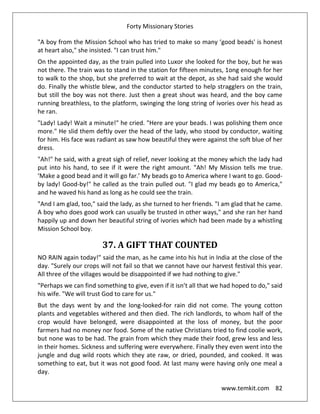
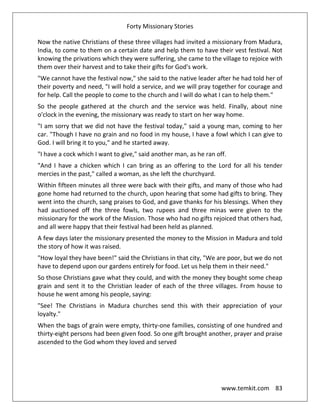
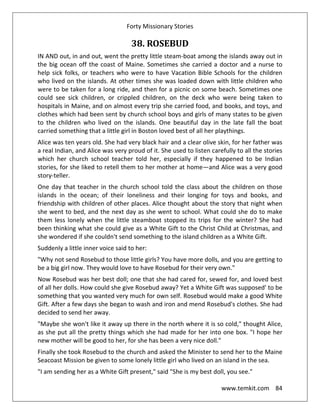
![Forty Missionary Stories
www.temkit.com 85
It was hard to shut down the cover of the box go away and leave Rosebud there in the
church, but Alice smiled bravely and went back to her other dolls, while Rosebud went
all alone more than five hundred miles to a place called Bar Harbor. With her went a
letter w Alice had written. It said:
“I hope you will like Rosebud as much as I did She was always a nice, quiet little girl.
Write and tell me how she likes the cold north. When I played with her I made believe
that she was four years old, for she had lived with me four years. I hope you will like her.
I am ten years old. Alice
When Rosebud reached her new home, every one loved her the minute that she was
taken from the box, and they knew that some little girl must have been a very good
mother to her. Who should be her new mother? There were so many, many lonesome
little girls that they did not know whom to choose. Finally one of the teachers, who lived
in a little white house very close to the sea on one of the larger islands, said:
"Why not let Rosebud go home with me? You know many children come to see me
every year, and often they have to stay for a time. Suppose Rosebud becomes a doll
missionary to help with those children. Every little girl who comes to see me shall have a
chance to hold her and play with her and sew for her. I should like to have her live with
me." So the teacher took Rosebud home.
One week after another went by, and Alice often wished she knew what had become of
her dear little doll. Then one day after Christmas a letter came, and with it came a nice
picture of Rosebud with the words, "Our New Missionary on the Coast," written below
it. Alice looked at Rosebud lovingly for a time, and then she read the letter:
Dear Alice [it said]:
We want Rosebud's little city mother to know that she is loved as she has never been
loved before, and that she likes the cold north very much. Even the boys want to make
things for her, so she has a cradle and a chair that they have given her. She has many
new clothes, and so many little girls want to play with her that we now have to say, "You
may hold Rosebud, for ten minutes, or fifteen minutes." She is doing beautiful wok and
is helping, just like the grown folks are helping, to make the children happy in their
homes on these islands away in the big ocean.
So Alice's White Gift gave her great happiness because it made her the little mother of a
real missionary named Rosebud.
39. A LITTLE CHILD SHALL LEAD THEM
DOWN the long narrow trail through the African bush which led to the small medical
outpost, Abesolo and her mother walked wearily along. They were nearly a hundred
miles from home, and more than half of the way they had walked, so the child's feet](https://image.slidesharecdn.com/40stories-160720094140/85/40-stories-85-320.jpg)
